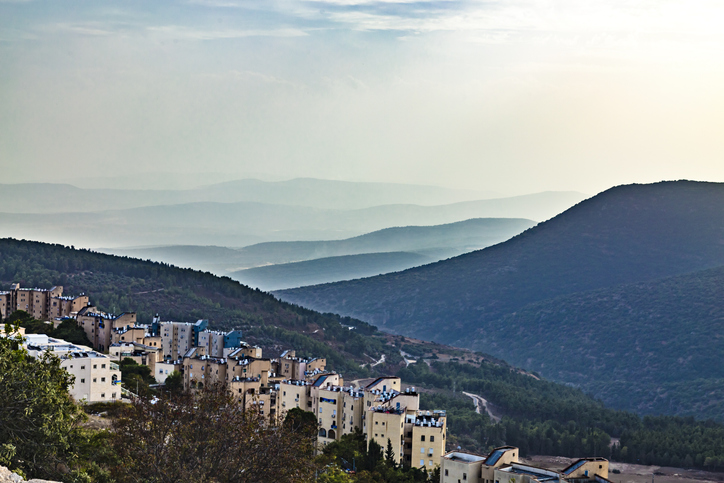From camp flings to Tu B'Av (the Jewish Valentine's Day), the summer months are a prime time for coupling up. But if you're still looking for your beshert (soulmate), then it might time to make a pilgrimage to the north of Israel to Amuka, home of the Jewish people's very own love oracle.
Located near the mystical city of Safed, Amuka is the burial place of Rabbi Jonathan ben Uzziel, a rabbi in Roman-ruled Judea. Legend has it that ben Uzziel died unmarried or childless (accounts vary as to which one it was) and expressed deathbed regrets that he hadn't started a family with a nice Judean girl.
In the 17th century, Kabbalists living in Safed began the practice of visiting ben Uzziel's tomb to pray for a soulmate. The most auspicious dates for this are said to be 26 Sivan (Uzziel's yarzheit, or death date) or on Rosh Chodesh, the day of the new moon. It is said that those who complete the ritual will find their soulmate within one year.
Today, in modern Israel, lonelyhearts still make the journey to Amuka, often in the dark of night. It's customary to pray at ben Uzziel's tomb, and for women to ascend to the roof to walk in a circle seven times, mimicking the marriage ritual of encircling the groom. They also leave behind scarves and scraps of fabric (though this is technically against the rules).
So does praying at Amuka actually work? The jury is still out, though Israeli media often features meet-cute profiles of couples who connected through the power of Amuka around Tu B'av. Plus, many people swear that their cousin's uncle's old roommate totally met their beshert this way. So if you're looking to couple up by Rosh Hashanah, it couldn't hurt to ask Rabbi ben Uzziel.



